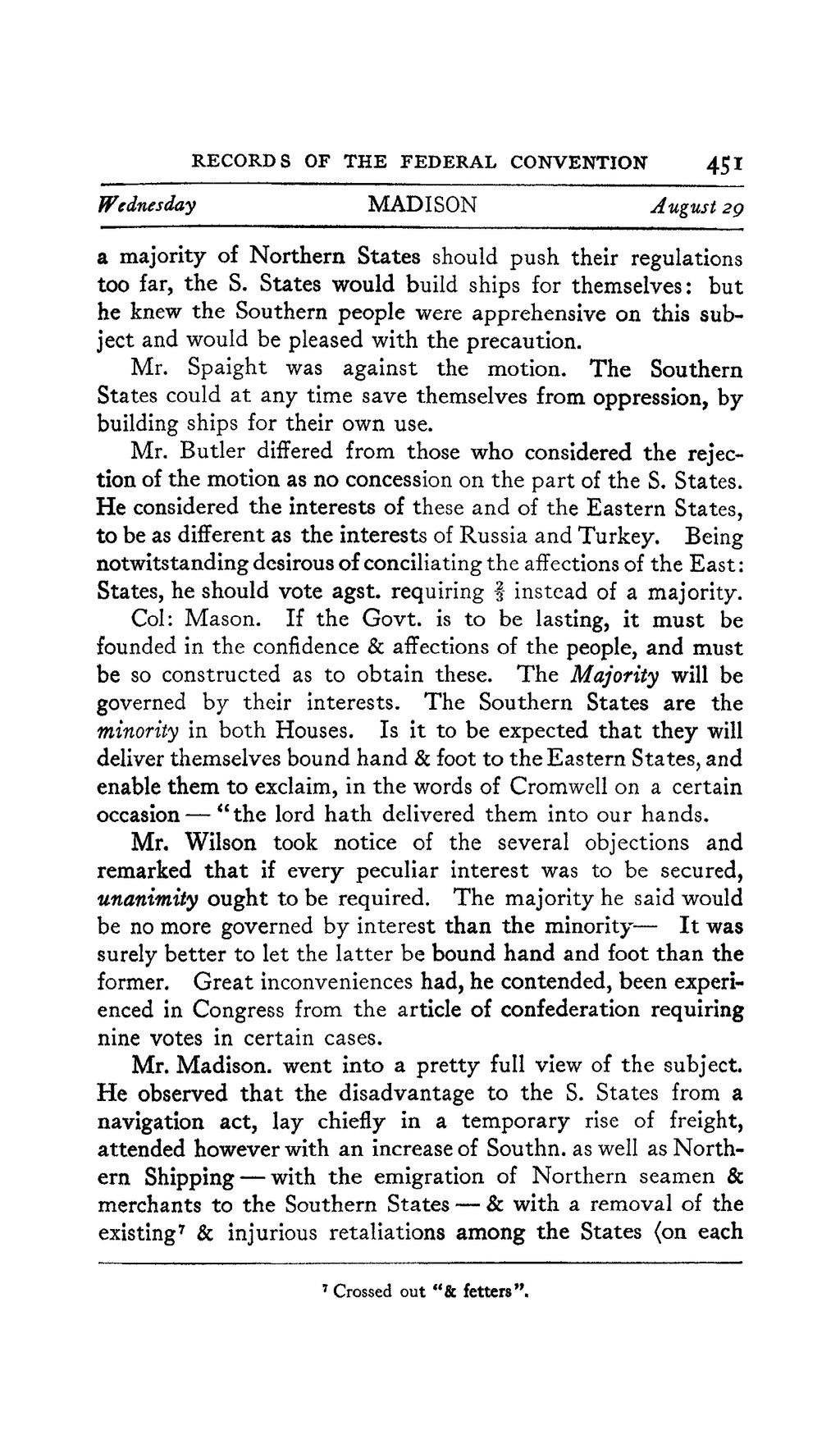I?ECOP, DS OF THE FEDERAL CONVENTION ?F?dn?$day MADISON -,/?g?.?t z9 a majority of Northern States should push their regulations too far, the S. States would build ships for themselves: but he knew the Southern people were apprehensive on this sub- ject and would be pleased with the precaution. Mr. Spaight was against the motion. The Southern States could at any time save themselves from oppression? by building ships for their own use. Mr. Butler differed from those who considered the rejec- tion of the motion as no concession on the part of the S. States. He considered the interests of these and of the Eastern States, to be as different as the interests of Russia and Turkey. Being notwltstanding desirous of conciliating the affections of the East: States, he should vote agst. requiring ??- instead of a majority. Col: Mason. If the Govt. is to be lasting, it must be founded in the confidence & affections of the people, and must be so constructed as to obtain these. The Majority will be governed by their interests. The Southern States are the minority in both Houses. Is it to be expected that they will deliver themselves bound hand & foot to the Eastern States, and enable them to exclaim, in the words of Cromwell on a certain occasion--"the lord hath delivered them into our hands. Mr. Wilson took notice of the several objections and remarked that if every peculiar interest was to be secured, $taanimlty ought to be required. The majority he said would be no more governed by interest than the minorit?y? It was surely better to let the latter be bound hand and foot than the former. Great inconveniences had, he contended, been experi- enced in Congress from the article of confederation requiring nine votes in certain cases. Mr. Madison. went into a pretty full view of the subject. He observed that the disadvantage to the S. States from a navigation act, lay chiefly in a temporary risc of freight, attended however with an increase of Southn. as well as North- ern Shipping m with the emigration of Northern seamen & merchants to the Southern States--& with a removal of the existlng 7 & injurious retaliations among the States (on each Crossed out *?& fetters".
�
